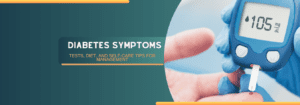Difference Between Cyst and Abscess
When it comes to abscess vs cyst, understanding the disparities between these two conditions is crucial for accurate diagnosis and appropriate treatment. In this comprehensive guide, we delve into the nuances of cyst vs abscess, providing insights into their characteristics, causes, and management.
What’s a Cyst?
A cyst is a sac-like structure formed by the accumulation of fluid, semi-fluid, or solid material. These formations can occur anywhere in the body and vary in size and composition. One common query is do cysts have pus? Generally, cysts do not contain pus unless they become infected. What is cyst is another question often asked, and it refers to a benign growth encapsulated within tissue.
Types of Cysts:
- Sebaceous Cysts: Arising from blocked sebaceous glands, these cysts often contain sebum.
- Ovarian Cysts: Common in women, these form on the ovaries and may be related to the menstrual cycle.
- Dental Cysts: These cysts develop around the roots of teeth and may cause dental issues.
- Bacterial Cysts: Resulting from bacterial infection, these cysts can occur in various body regions.
Understanding Abscesses
Unlike cysts, abscesses are characterized by inflammation, swelling, and the presence of pus. They typically arise as a result of bacterial infection and can occur internally or externally. What’s the difference between a boil and a cyst is a common question; boils are a type of abscess characterized by localized inflammation of hair follicles.
Types of Abscesses:
- Skin Abscesses: These occur beneath the skin and are often caused by bacterial infection.
- Dental Abscesses: Resulting from infection in the teeth or gums, these can cause severe pain and swelling.
- Internal Abscesses: These develop within the body, often in organs such as the liver or lungs.
Distinguishing Characteristics: Cyst vs Abscess
Cyst:
- Texture: Typically soft or firm, depending on the content.
- Contents: May contain fluid, semi-fluid, or solid material.
- Formation: Develops gradually and may or may not cause symptoms.
- Treatment: Management varies based on size and symptoms, ranging from observation to surgical removal.
Abscess:
- Texture: Often firm due to inflammation and pus accumulation.
- Contents: Filled with pus, a mixture of dead cells, bacteria, and tissue fluid.
- Formation: Rapid onset of symptoms, including pain, swelling, and redness.
- Treatment: Requires drainage to remove pus and antibiotic therapy to combat infection.
Breast Boil vs Cyst: Understanding the Difference
Breast boils and cysts are two distinct entities that can occur in the breast tissue. While both may present as lumps, their underlying causes and characteristics differ significantly. A breast boil is typically an abscess caused by bacterial infection, whereas a breast cyst is a fluid-filled sac encapsulated within breast tissue.
Management and Treatment
The approach to managing abscesses and cysts depends on several factors, including the location, size, and symptoms:
- Abscesses: Immediate treatment involves drainage to remove pus and alleviate symptoms. Antibiotics may be prescribed to combat bacterial infection.
- Cysts: Treatment may vary from observation to surgical removal, depending on the size and impact on surrounding structures.
Prevention Strategies
While some cases of cysts and abscesses are unavoidable, certain preventive measures can reduce the risk of their occurrence:
- Maintain good hygiene: Regular handwashing and skin cleansing can minimize the risk of bacterial infection.
- Avoid trauma: Protecting the skin and soft tissues from injury can prevent the formation of abscesses.
- Manage underlying conditions: Addressing underlying medical conditions, such as diabetes or immune disorders, can reduce susceptibility to infections.
Consultation and Follow-up
If you suspect a cyst or abscess, it’s essential to seek medical evaluation promptly. A healthcare provider can perform a thorough examination, provide a definitive diagnosis, and recommend appropriate treatment options.






